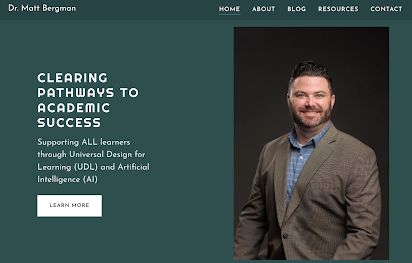I don't do this often, but I figured that I would share my opinion instead of a new technology, partially because I am tired of hearing about all of the reasons why we cannot invest technology into our schools. We are willing to spend thousands of dollars putting turf on our athletic fields for a few students who may play collegiate athletes, yet we cannot add new technology or create a position to "coach" staff and students on how to develop 21st century skills. Don't get me wrong, I am a former college football player and love the turf. But let's be realistic, more kids will benefit when technology is strategically implemented into classrooms. Just having the technology is not enough. How it is used makes all of the difference!
How would you compare school during your days as a student
compared to today’s classrooms? One big change is the integration of technology
into the classroom. As schools progress in the 21st century, many
schools still lag behind in technology integration. Why is this?
I recently read a blog post in Edutopia titled Why
Integrate Technology into the Curriculum?: The Reasons Are Many. It explored some of the reasons why
schools still lag behind.
- One major issue is funding. Schools just don’t have the money to provide the latest and greatest technology and professional development. Integrating technology would require teaching students and teachers the technological skills necessary to use technology, which could be done by incorporating a technology class to teach these skills. However, given today’s financial constraints on schools, administrators are looking for ways to cut positions and not add them.
- Integration should be a cross-curricular activity to be most effective. The article had mentioned the four key components necessary for successful integration:
- Activity Engagement
- Participation in Groups
- Frequent Interaction and Feedback
- Connections to Real-World Experts
- The article had mentioned the barrage of new technology tools available to students and teachers; however, this can be overwhelming to educators who feel that they need to be the “expert.” Author Margaret Wheatley once stated that true learning and understanding occurs when we are “willing to be disturbed.” We need to let go of the need to constantly be the expert and allow our students to help us learn valuable technology skills. When was the last time you asked a student for technology advice? Or better yet, when was the last time you allowed your students to use your SmartBoard to create an interactive lesson? Can you say that you are you willing to be disturbed?
- “Technology changes the way teachers teach.” The old broadcasting method is becoming obsolete, where the teacher is the expert and students must learn by listening. Education is changing and so are our student’s brains. Why are our students bored with school? Perhaps is could be the way we engage them. In his book Grown Up Digital, Don Tapscott mentions the need for collaborative learning or a 2.0 model of education. In this model, collaboration and interaction is expected from both the educator and students. We may no longer be able to rely on sharing the same PowerPoint year after year because the needs of our students and the content may change. As educators, can we say that we are comfortable in teaching in this type of model?
As our 21st Century classrooms are changing, we
have some major questions to ask ourselves. Are we willing to be disturbed? Are
we willing to take the risk to change the pedagogy used to teach students? Dave
Edyburn once stated that “technology is essential” to enhancing student
learning. Many educators, administrators, and parents would agree. If we think
this is so, then why are we not doing anything? Are we willing to make an
investment in incorporating technology in our classrooms? Our educational system is in the midst of dark
days, where cutting seems to be more prevalent than investing. If our children
are our future and they will eventually inherit this global economy, then why
aren’t we taking a stand? Why aren’t we digging our heals into the ground and
saying that we have had “enough”? Why aren’t we willing to invest in teaching
our students in a relevant way?






No comments:
Post a Comment